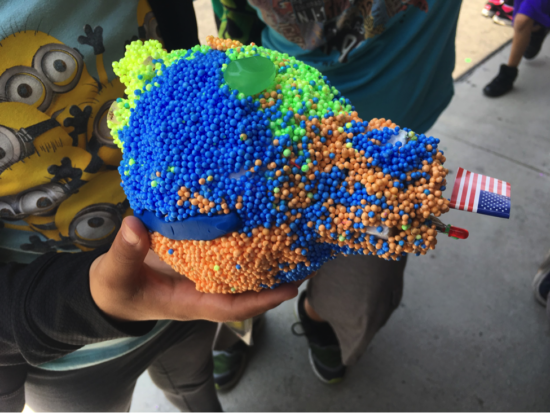This summer, I am teaching summer school for the first time at an elementary school. When information was first shared about our selection process and the fact that funding was directly attached to that criteria (rising 4th and 5th graders who scored below grade level), I immediately envisioned the same boring-type of summer that would consist of drilling students with as much content as possible in three weeks with the hope that they could catch up to their classmates. Summer school was offered at each of the elementary schools labeled as “Program Improvement” schools, my school being one of them. While I am aware that teachers are ultimately responsible for making learning fun, the usual summer school structure does not work in our favor. But as soon as summer school training kicked off, I realized how different this summer school experience would be in comparison to my expectations.
For the first time, our district decided to partner with the National Inventors Hall of Fame, an organization committed to being the driving force behind lifelong innovation by developing a summer curriculum that is inspired by the work of the Inductees of the National Inventors Hall of Fame. The organization’s signature program, Camp Invention, allows for local educators to be trained in STEM-rich programming that allows for students to have the opportunity to learn from the work of past inventors to create new, unique inventions. As described in its mission, “instead of being defined by the past, [we] invest in the future.”
While the concept sounded far from the typical summer school program, the results have been nothing short of outstanding. Throughout the three-week program, students were exposed to physics, exploring laws of motion and energy, all by creating their own roller coasters from basic supplies. They were exposed to our solar system and aerospace engineering while learning about terraforming and creating their own exoplanets. Students even learned about business and the concept of supply and demand by having the opportunity to develop “fair-style” games that further fostered collaboration and ingenuity.
In visiting our classrooms, one would have never noticed that the students building rockets were ever struggling students. But that is the key — ALL students have the ability to create and invent. Imagination CAN be fostered regardless of math and reading skills. For the first time, I heard students who often demonstrated behavior issues, discussing dreams about becoming astronauts and engineers. All it took was three weeks.
Camp Invention has provided me a whole new perspective on just how powerful summer school can be if the time is used correctly. Perhaps, if we embedded more opportunities to spark student curiosity during regular school programing, students would be able to really live up to their potential. Perhaps this is just another example that our achievement gaps actually stem from gaps in opportunities.
As educators and student advocates, we must redefine what summer school should really be like and use this time to make learning fun. It is now our responsibility to make school fun for all students, as the next brave astronaut, great engineer or maybe even, next Steve Jobs, is in our classrooms waiting for an opportunity to shine. And if we can only commit summers to providing students a blank canvas to create, then let’s at least prioritize making the best of that time so that all students can look forward to summer school for years to come.
Alma Renteria
Latest posts by Alma Renteria (see all)
- Rincón Universitario: Cómo Escribir una Narrativa Auténtica para Solicitudes de Universidades, Parte 3 - October 17, 2019
- College Corner: How To Write An Authentic Narrative for College Applications, Part 3 - October 15, 2019
- Rincón Universitario: Cómo Escribir Una Narrativa Auténtica para Solicitudes Universitarias, Parte 2 - October 1, 2019
- College Corner: How To Write An Authentic Narrative for College Applications, Part 2 - September 26, 2019
- College Corner: Cómo Escribir un Relato Auténtico de Solicitudes para la Universidad, Parte 1 - September 4, 2019


